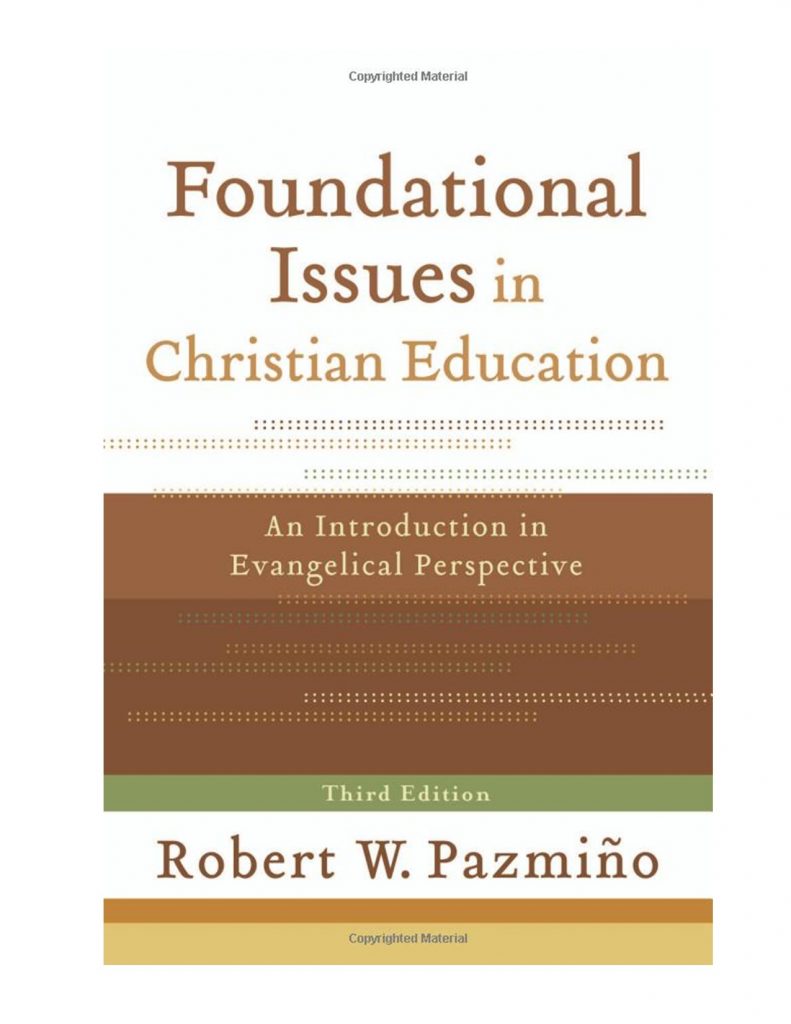Dancing with Jesus
The Trinity and Spiritual Formation
My work as a hospice chaplain often leads me to be with a person in their last moments of life. There was a family I was with recently who asked me to pray for their loved one. He had become unconscious and was near death. He had told them the day before that his last wish was to have a Christian version of the last rites. It seems he had drifted from the Lord for a few years before getting sick and ending up in a skilled nursing facility. He was repentant and had prayed for forgiveness, but was not physically able to go to church. I spent a few minutes offering spiritual counsel to the family. We sang Amazing Grace at the bedside. I prayed over the gentleman, asking God to forgive any sins that he had committed (John 20:23), and asked the Lord to prepare him for Heaven anointing the gentleman with oil. Then we prayed the Lord’s prayer together. It was a simple ritual, but it brought peace to the family, and I saw a noticeable calm come over the gentleman as if a big weight had been removed from his shoulders. No sooner had I said, “Amen” at the end of the Lord’s prayer, as I watched him, than the man released his last breath and passed into eternity.

There is an old Chris Rice song called “Come to Jesus.” The first part of the song goes like this:
Weak and wounded sinner
Lost and left to die
Oh, raise your head for Love is passing by
Come to Jesus
Come to Jesus
Come to Jesus and live
This elderly man had come to Jesus to make peace with him at the very end of his life. The rest of the story was that the man and his wife, (who was present at his death), had been married for 71 years. Within days, his wife also passed from this life. They had spent nearly their whole lives together, and now they were together in death. They were both Christians and passed into Heaven.
One of the tenets of the Christian faith is the theology of the Trinity. Spiritual transformation emerges from the Trinitarian nature of the God we serve. The Trinity teaches us how God is relational, loving, and gracious. There is unity in the will of God, as we also see they are submissive to each other. The Trinity is a difficult concept for our human finite minds to comprehend. There is only one God. At the same time, God is three divine persons existing in one infinite, omnipotent, omniscient, omnipresent being.
Christians have always struggled to describe the Trinity. But the very nature of the Trinity teaches us the nature of spiritual formation and the relationship of Christians with God and each other. The ancient Christian writers used the Greek word “perichoresis” to describe the relationship between the triune Godhead. This word literally can be translated “dance around.” This term paints a picture for us of how each member of the Trinity indwells each other and flows between each member. The late Eugene Peterson, the writer of the Message version of the Bible, describes perichoresis as exchanging partners on a dance floor. There is beauty and rhythm to the dance. As the dance continues, one finds themselves dancing with the Father, then a moment later with the Son followed by the Holy Spirit, twirling and dancing around and around.
The Chris Rice song, “Come to Jesus” goes on to say the following:
Oh and when the love spills over
And music fills the night
And when you can’t contain your joy inside
Then dance for Jesus
Dance for Jesus
Dance for Jesus and live
I’m reminded of how the Bible describes a couple united in marriage. Ephesians 5:31(ESV) says, “Therefore a man shall leave his father and mother and hold fast to his wife, and the two shall become one flesh.” This is not a perfect example since a married couple is not three, but two. The love flowing between a husband and wife; the mutual affirmation; promoting the welfare of the other and protecting each other is a great, though simple example of what happens with the Trinity. A unity candle is often lit during a wedding ceremony. In this ceremony, two candles are lit, one for the husband and one for the wife. Each takes their candle and lights a single candle symbolizing the uniting of the two flames into one. They then snuff their individual candles showing they were no longer an individual but a unified couple. So they begin a partnership, moving as one, in the dance of life.
The rhythmic, harmonious relationship, the dance of the Trinity, gives a wonderful example to us of the process of spiritual formation. Each member of the Trinity has a specific function or job. God the Father gave the plan of salvation, the Son provided the means of redemption for us. The Holy Spirit is the sanctifier that fills Christians. God is three, but the three are not divided but united. We are to follow the leading of Christ. Jesus said, in John 21:22, “Jesus said to him, “If it is my will that he remain until I come, what is that to you? You follow me!” Jesus is our dance partner, and we are to follow his lead. Peter encourages that as well. He wrote in 1 Peter 2:21, “For to this you have been called, because Christ also suffered for you, leaving you an example, so that you might follow in his steps.” Peter is saying we should imitate Christ as we follow him. When we mimic Jesus, our life will affirm, encourage, and bless others. God is a God of love, and as we follow Him we demonstrate the love of God to community. In John 13:34-35 Jesus laid out for us what this looks like. He said, “A new commandment I give to you, that you love one another: just as I have loved you, you also are to love one another. By this, all people will know that you are my disciples, if you have love for one another.”
The unity demonstrated in the Trinity demonstrates how we should be loving and seeking Christian fellowship and community. It shows how we should desire to be close to other believers, and be connected to them in community. At the same time, it shows how we need to be acknowledged as an individual and have our own space. If we have too much union, we lose our sense of self and we feel suffocated. If we have too much space away from others we will begin to feel lonely. We need a combination of both unity and space.
God does not only want us to have community with other believers and fellowship with Him. He is also a missional God and wants to bring others into fellowship with Him. He sends us as his representative to reach others through evangelism. In the great commission, Jesus told us to go. In Matthew 28:19-20 he said, “Go therefore and make disciples of all nations, baptizing them in the name of the Father and of the Son and of the Holy Spirit, teaching them to observe all that I have commanded you. And behold, I am with you always, to the end of the age.”
Salvation is not just about going to Heaven when we die. There is so much more! There is a new life and a relationship now. God seeks to restore fellowship with us here and now. Having this intimate relationship with God in the present, makes our going home that much sweeter. The last part of Chris Rice’s song, “Come to Jesus” puts it this way:
With your final heartbeat
Kiss the world goodbye
Then go in peace, and laugh on Glory’s side
And fly to Jesus
Fly to Jesus
Fly to Jesus and live
So to summarize, spiritual transformation, the community of believers, and the Great Commission come together for Christians. We are to take these three actions, in emulating the Trinity. First, believers are to be united in community with other followers of Jesus Christ. Fellowship with other Christians is not optional. We are told to not forsake coming together with other Christians (Hebrews 10:25). Secondly, we are to be actively involved in leading other sinners to Jesus Christ. We introduce a new dance partner to those who are lonely, broken, and hurting, without the loving Savior. Sharing the good news of the Gospel should become a way of life for us. Finally, third, as we strive to imitate Christ, partnering with the Holy Spirit, spiritual transformation begins to take place. We are transformed day by day into the image of Christ. That should be the goal of every Christian, to become more and more like Jesus.

